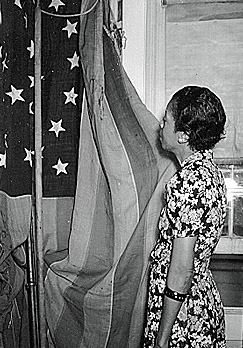Jeannette Carter facts for kids
Jeannette Carter (1886 – 1964) was an American lawyer and a strong supporter of workers' rights. She also worked to gain voting rights for women. She was the first African-American woman in Washington, D.C., to become a notary public. A notary public is someone officially allowed to witness signatures on important documents.
Contents
Early Life and Education
Jeannette Carter was born in 1886 in Harrisburg, Pennsylvania. She went to Howard University School of Law from 1908 to 1912. This is where she studied to become a lawyer.
After finishing law school, Carter started her own legal practice. She worked in the Washington, D.C. area. Her work focused on helping people with their pensions and claims. Pensions are regular payments made to people after they retire. Claims are requests for money, often related to injuries or damages.
Becoming a Notary Public
Jeannette Carter was appointed as a notary public. This was a very important step. She became the first African-American woman in Washington, D.C. to hold this position. This showed her dedication and skill in the legal field.
Working for Change
Jeannette Carter was very active in movements that fought for fairness and equality. She helped organize the Niagara Movement around the early 1900s. This group worked to end racial discrimination and ensure equal rights for African Americans.
Supporting Women's Rights
Carter was also a key part of the African-American women's club movement. These clubs helped women improve their communities and fight for their rights.
In 1917, Carter, along with Mary Church Terrell and Julia F. Coleman, started the "Women's Wage Earner's Association" (WWEA). This group specifically helped African-American women workers. They worked to improve working conditions and wages. Carter became the president of the WWEA in 1918.
Government Work and Political Action
Later, Jeannette Carter was chosen to be the director of the "Colored Bureau of Industrial Housing and Transportation." This bureau was part of the United States Department of Labor. It helped African-American workers find good housing and transportation.
In 1921, Carter joined a group called the "National Colored Women's Legislative Bureau." This group worked to influence laws that would help African-American communities.
In 1923, Carter founded the "Women's Republican National Political Study Club." Through this club, she created two magazines: the Political Recorder and the Women's Voice. These magazines shared important political information and opinions. They helped educate women about politics and encourage them to get involved.
Later Life
Jeannette Carter continued her work for justice and equality throughout her life. She passed away in 1964. Her efforts helped pave the way for future generations.
Images for kids



